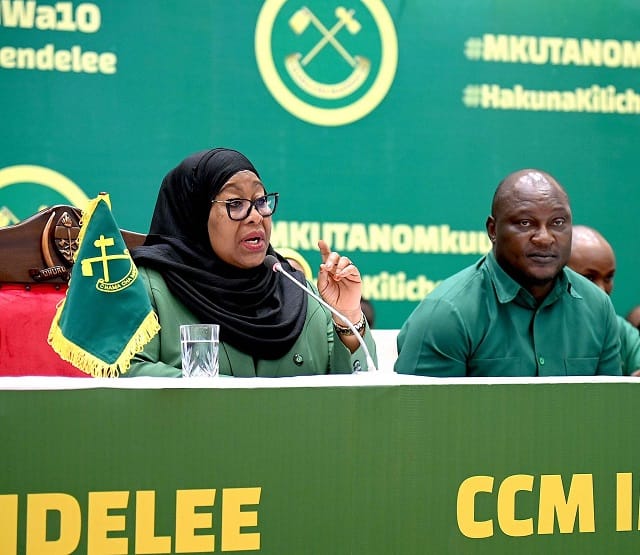Tanzania’s dominant political force, Chama Cha Mapinduzi (CCM), has officially opened the nomination process for local and national candidates ahead of the country’s general election set for October 2025. The move marks a critical phase for President Samia Suluhu Hassan as she seeks a first full term in office.
President Samia, who assumed leadership in 2021 following the death of former president John Pombe Magufuli, is expected to secure a comfortable victory—provided she retains control within CCM and manages national stability.
The ruling party, which has governed Tanzania since independence, is aiming to maintain its sweeping political hold. In the 2020 elections, CCM won 256 out of 264 parliamentary seats and delivered an overwhelming presidential win for Magufuli with over 84% of the vote.
This year’s internal nomination contest has attracted a diverse pool of aspirants including civil servants, entrepreneurs, and rising youth figures. Notably, Jessica Magufuli, daughter of the late president, has entered the race for a youth-reserved seat—widely viewed as a sign of political dynasty-building within the party.
Meanwhile, Tanzania’s main opposition party, CHADEMA, has been effectively sidelined. Its presidential candidate in 2020, Tundu Lissu, who officially secured just 13% of the vote, now faces treason-related charges. He remains in detention, and his party has been barred from participating in the upcoming election, sparking concerns over political openness. CHADEMA leaders claim the charges are politically motivated—a view rejected by the government.
At the grassroots level, CCM’s grip appears unshaken. The party won over 99% of village-level seats in 2024, leaving the opposition with minimal representation. Critics have raised questions about the fairness and competitiveness of Tanzania’s democratic environment.
As election season unfolds, political observers say the real contest may lie more within CCM’s internal nomination process than in the broader multiparty landscape. While President Samia’s leadership enjoys relative calm, her administration faces growing scrutiny from rights groups and international monitors over electoral freedoms and civic space.
Nonetheless, if the current trajectory holds, CCM is set to reinforce its political dominance, with President Samia positioned to extend her mandate deep into the next decade.



